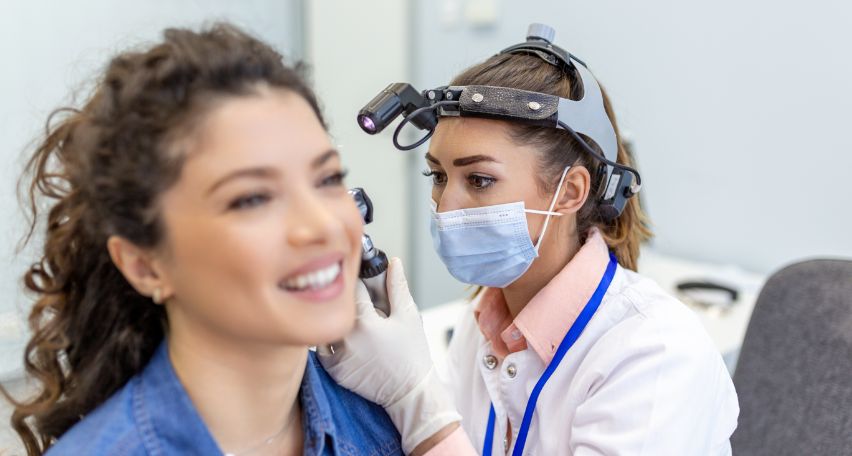With a range of medical specialties, titles, and credentials around, it is challenging to determine which type of professional to consult for a particular ear or hearing concern. For instance, in case of a hearing issue, should you be consulting an audiologist or an ENT Specialist? Also, there is this Hearing Instrument Specialist! So, let’s figure out each one’s roles and who is the right person you want to meet.
Audiologist
An audiologist is a medical professional. They have a master’s degree, clinical doctorate, or research-based doctorate (Ph.D.) in audiology from an accredited university. An Audiologist will have extensive education and training in diagnostic testing to identify, evaluate and measure hearing loss and other related issues, including balance disorders and tinnitus. You need to see an audiologist if you notice changes in your hearing, wish to buy a hearing aid, need programming and maintenance of hearing aids, or you are experiencing ringing in your ears (tinnitus). You can also consult them for hearing implant programming and aftercare for cochlear implants or bone-anchored hearing systems.
Hearing Instrument Specialists
A state-licensed professional who evaluates hearing issues and selects and fits hearing aids is a Hearing Instrument Specialist. Like Audiologists, they too are skilled at finding the proper hearing solution based on your hearing evaluation, lifestyle, and budget. They typically focus on adult patients with common types of hearing loss, such as age-related or noise-induced hearing loss. You can consult a Hearing Instrument Specialist if you are an adult and have concerns with your hearing, wish to buy hearing aids, need a hearing test, or need programming and maintenance of hearing aids.
ENT or Otolaryngologist
Otolaryngologists and Otologists, or ENT (Ear, Nose & Throat) Specialists, are trained, medical professionals. They are experienced in managing diseases and disorders of the ear, nose, and throat and related structures of the head and neck. They offer a broad spectrum of services for ear disorders, including ear infections, hearing loss, middle ear problems, balance disorders, swimmer’s ear, tinnitus, cranial nerve disorders, and congenital disorders of both the inner and outer ear.
Educational Audiologist
Educational Audiologists are trained to work with children with hearing impairment to ensure they receive the same educational opportunities. Usually, they are employed in the school system. They play a critical role in identifying a child’s hearing loss. Nevertheless, they are uniquely qualified to determine the impact of hearing impairment on learning. They develop an Individualised Education Program (IEP) and devise plans for such students to get maximum classroom support in the classroom, including recommendations for hearing assistive technology. Other responsibilities include counseling parents and teachers regarding the child’s hearing disability and individual needs and educating the school population about hearing loss. You can consult an educational audiologist about developing an IEP if your child has been diagnosed with hearing loss. You can take their help to mainstream your child with hearing loss and manage your child’s support in the school system.
